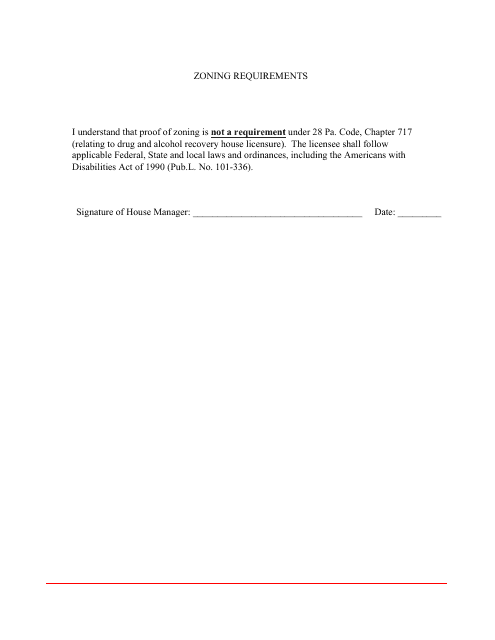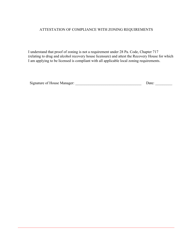Zoning Requirements - Pennsylvania
Zoning requirements in Pennsylvania are for regulating the development and use of property within specific areas or zones. These rules and regulations are established to ensure the orderly growth of communities and enhance the quality of life for residents. Zoning requirements may dictate the types of businesses that can operate in certain areas, the location and size of buildings, parking requirements, and more. They are intended to protect the health, safety, and general welfare of the community, while also promoting economic stability and growth.
The zoning requirements in Pennsylvania are typically filed by local city or county planning departments. Property developers or individual residents who want to propose a building or renovation project will also need to ensure they meet specific zoning requirements and may need to file relevant zoning documents. For more specific zoning information or for zoning changes, individuals or organizations may need to consult with zoning attorneys or the local zoning board.
FAQ
Q: What is zoning in Pennsylvania?
A: Zoning in Pennsylvania refers to regulations that dictate the type of structures and activities that may occur on private land in different zones of the state. These laws provide guidelines for residential, commercial, industrial, and other types of land uses.
Q: How are zoning laws enforced in Pennsylvania?
A: Zoning laws in Pennsylvania are enforced by local municipalities. The zoning officer or municipal officials usually ensure that all developments and structures conform to zoning regulations. Violation of these laws may result in penalties such as fines, injunctions, or even demolition of the structure in severe cases.
Q: What are the types of zoning in Pennsylvania?
A: There are several different types of zoning in Pennsylvania, including residential, commercial, industrial, agricultural, and mixed-use zoning. Each type sets specific rules regarding what can be built on the land and how it can be used.
Q: Can zoning laws be changed in Pennsylvania?
A: Yes, zoning laws in Pennsylvania can be changed via a process known as rezoning. A property owner can submit a petition for rezoning to their local municipality if they want to use the land differently than current zoning laws permit. However, approval is not guaranteed and may involve community hearings and reviews by planning commissions.
Q: Why are zoning laws important in Pennsylvania?
A: Zoning laws are important in Pennsylvania because they help control population density, ensure appropriate land use, protect the environment, and maintain the character of communities. They also help local governments plan for infrastructure and public services needs.
Q: What is a variance in Pennsylvania zoning?
A: A variance in Pennsylvania zoning is a request to deviate from current zoning requirements. It is usually granted when compliance with the zoning law would cause the landowner unnecessary hardship. Granting a variance requires a public hearing and decision by a local zoning hearing board.


